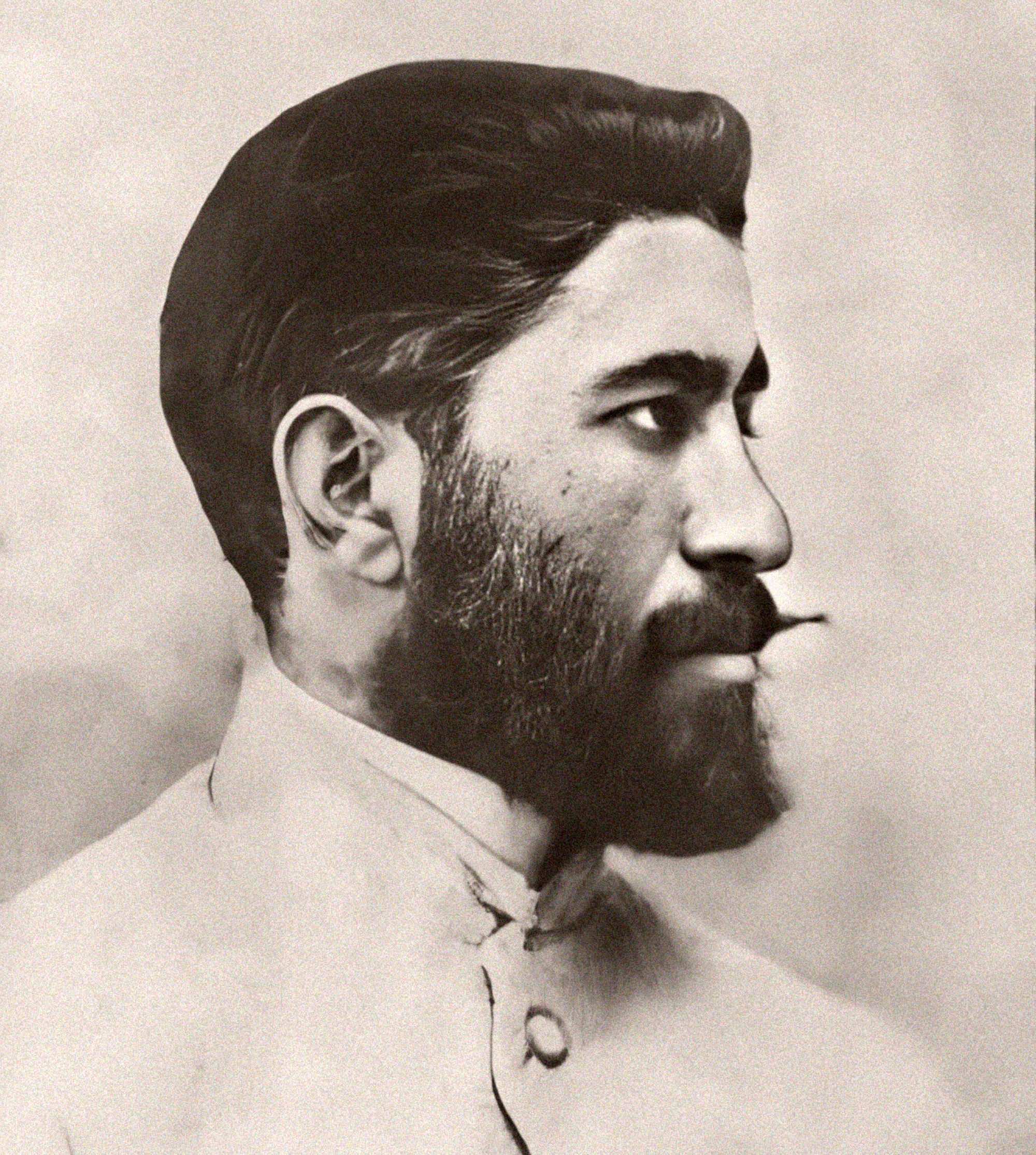Khosrov bey Sultanov is a prominent statesman and political figure of the Azerbaijan Democratic Republic
 Khosrov Pasha bey Sultanov was born on May 10, 1879 in Kurdhaji village of Zangazur district. He studied at the Ganja Gymnasium and graduated from the Medical Faculty of Novorossiysk University (1903). He was preparing medicine from the rich herbs he was gathering in Garabagh and disinterested treated the sick people in the villages. Khosrov Bey, one of the intellectuals who loved the history, literature and culture of his homeland called one of his houses in Shusha called the Eastern Library and lectured on the history and culture of the East peoples.
Khosrov Pasha bey Sultanov was born on May 10, 1879 in Kurdhaji village of Zangazur district. He studied at the Ganja Gymnasium and graduated from the Medical Faculty of Novorossiysk University (1903). He was preparing medicine from the rich herbs he was gathering in Garabagh and disinterested treated the sick people in the villages. Khosrov Bey, one of the intellectuals who loved the history, literature and culture of his homeland called one of his houses in Shusha called the Eastern Library and lectured on the history and culture of the East peoples.
Khosrov bey Sultanov was a member of the Musavat party in 1917 and was elected a member of the Russian Entrepreneurship Assembly. He was a member of the Transcaucasian Seym. In 1918, he moved to the "Ittihad" Party. One of the 26 people who signed the Declaration of Independence on 28 May 1918 was Khosrov bey Sultanov. He was appointed to position of military minister to the 1st government cabinet approved by the National Council of Azerbaijan in Tbilisi, and together with Nasib Yusifbeyli and Shafi bey Rustambeyli, he was sent to Ganja as part of the first delegation with for the purpose of explaining the formation of the National Council and the Government of Azerbaijan, their goals and tasks, creating peace and order in the region. Khosrov Bey was Minister of Agriculture in the 2nd cabinet of government in Ganja on June 17, 1918.
Khosrov Bey served with his brother Sultan Bey in 1918-20 in the cleaning of Garabagh and Zangazur from dashnak-Armenian bandit gangs. The Government of the Azerbaijan Democratic Republic, in order to prevent the genocidal policy implemented by the Armenian Dashnak government in state level against Azerbaijanis in the Zangazur region beginning from the summer 1918, the massacres, atrocities and robberies committed by Andronik, Njden, Dron gangs in Javanshir, Jabrail, Shusha gaza separated Shusha, Zangazur, Javanshir, Jabrail from Ganja gubernia and created Temporary Garabagh general-governorship, and appointed Khosrov bey Sultanov as the governor-general of that governorship on February 12, 1919.
The establishment of the general governorship by the Azerbaijani government on their historical lands and appointment of Khosrov Pasha bey Sultanov to this post made Dashnaks anxious. In numerous appeals by the Armenian Foreign Ministry to the Russian government, other leading states and international organizations, in protest letters to the Azerbaijani government, a claim was made that allegedly most of the region was territory of Armenia, and Khosrov Pasha bey was the enemy of Armenians.
Khosrov Pasha Bey Sultanov, as he arrived in Shusha, started a ruthless struggle with the Armenian bandit gangs of Dashnak lead by Andronik in Garabagh, created a guard unit of national army in dangerous places, and managed to withdraw Armenian National Council members from Azerbaijan. In response to this, Armenian militants made an armed clash in Shusha, however, the next day - on June 6, the peace was gained and the peaceful Armenian population of the city wrote an apology letter to Khosrov bey Sultanov and apologized from Muslim community of Shusha for provocation of Armenian separatists. In the summer of 1919, as a result of the decisive position and purposeful policy of the Azerbaijani government, Khosrov bey Sultanov served a great deal in the restoration of the sovereign rights of Azerbaijan in Karabakh, Zangazur and other places where Armenians made territorial claims. In September of the same year, the Azerbaijani government granted cultural autonomy to the Armenians living there. Khosrov bey Sultanov lived in exile after April defeat (1920), and tried to form the party's foreign office as one of the leaders of the "Ittihad" party, and to gather all followers around an organization. He went to Paris from Iran in 1926 and created the Union of Tehran and Tabriz committees here. While being in Turkey, Khosrov Pasha Bey, helped the Azerbaijani prisoners who were captured during the Soviet-German war in 1941-45 to free the prison camps and opened an Azerbaijani hospital in France. He died on January 7, 1943 in Istanbul, Turkey. He was buried in Ferikoy Cemetery in Istanbul.
Recommended literature:
- Çingizoğlu, Ənvər. Xosrov bəy Sultanov : tarixi-bioqrafik tədqiqat / Ə. Çingizoğlu ; elmi red. Q. Ə. Hacıyev ; red. F. Şahsuvarov ; Azərbaycan Tarix Qurumu. - Bakı : Mütərcim, 2012. - 104 s.
- Azərbaycan Xalq Cümhuriyyətinin qurucuları: portret-oçerklər və məqalələr / Azərbaycan Respublikasının Milli Arxiv İdarəsi; red., ön sözün müəl. Ə. A. Rəsulov.- Bakı: Elm və təhsil, 2018.- 248 s.
- Yaqublu, Nəsiman Qara oğlu. Cümhuriyyət qurucuları / N. Q. Yaqublu; red. İ. Quliyeva.- Bakı: Nurlar NPM, 2018.- 504 s.